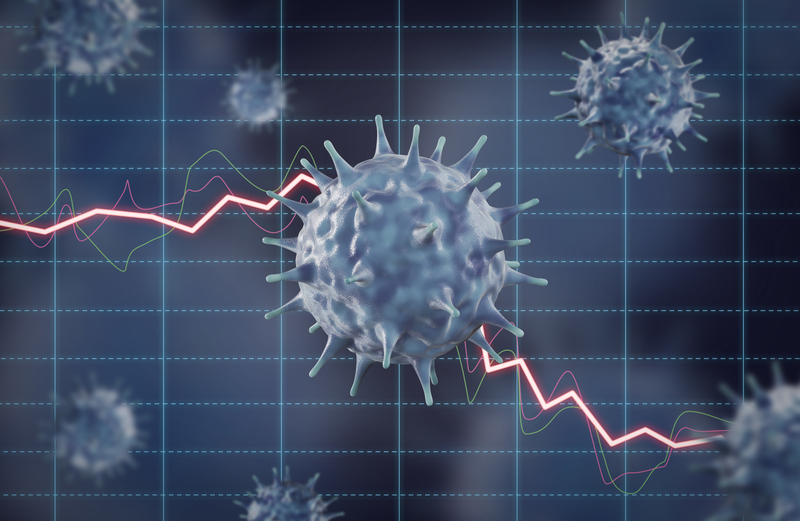AUDA-NEPAD’s COVID-19 response plan aims to improve health access and protect economies

By Kingsley Ighobor
The African Union Development Agency (AUDA-NEPAD) has launched a COVID-19 Response Plan of Action to assist African countries to improve access to sustainable and resilient health services and protecting economies. In this interview with Africa Renewal, the CEO of AUDA-NEPAD Ibrahim Mayaki discusses the scope of this initiative. These are the excerpts.
What exactly is the AUDA-NEPAD COVID-19 Response Plan of Action?
The AUDA-NEPAD COVID-19 Response Plan of Action is a comprehensive, proactive and multidimensional plan that will help tackle both the current COVID-19 challenges and the post-pandemic repercussions. It is a direct response in improving access to sustainable and resilient health services, while ensuring the protection of Africa’s economic foundations.
Aiming to cover the ecosystem that would be affected by the crisis, the response plan will mainly focus on seven thematic areas: Health Service Delivery; Human Resources for Health; Research & Development Innovation and Local Manufacturing; Education and Training; Skills and Employability; Food and Nutrition Security; and Financing.
How long will the response plan last?
It is meant to last for as long as COVID-19 exists and then three years after the pandemic. The idea is to ensure that, as long as this crisis lasts, Africa has the means and tools to fight against it and, on the other hand, anticipate the big economic losses, as well as the lessons learned for a brighter African continent.
How do you plan to implement the response?
We have set up multidisciplinary teams covering four core dimensions: data collection and analysis innovation and transfer of knowledge; implementation, and monitoring of impactful projects in the response to COVID-19; private sector engagement, and communication and advocacy.
We will need to work with our Member States and Regional Economic Communities for the implementation. Basically, we play the role of facilitator and a platform of transfer of expertise and technology from and to our Member States with the help of our traditional partners such as financial institutions, the private sector, and foundations.
For the immediate term, which areas will you focus on?
We are focusing on key thematic areas including health service delivery; capacity building for healthcare human resources; research, development, and innovation to enhance local manufacturing; education and training skills and employability; food and nutrition security; and financing.
Our Member States faced challenges in addressing the issues of shortage of vital sanitary and medical equipment, while increasing lockdowns in countries have worsened the situation. The high prevalence of endemic diseases such as HIV and AIDS, tuberculosis, malaria, etc. already overstretch an important number of health systems in Africa. So, together with our Member States, we need to focus on the containment of the pandemic with aggressive preventive measures. The ultimate objective is to facilitate the construction of reliable public health systems based on the principle of shared responsibility and collective solidarity.
Any plan on the local production of medical equipment?
As the world faces a big supply crisis, Africa needs to prioritize the production of equipment for domestic markets. We have put in place an e-learning platform, including production modules and open-source licenses, to benefit manufacturers who are willing to produce vital sanitary equipment.
Also, AUDA-NEPAD is in the process of launching a platform to enhance “Made in Africa” ventilators, masks and sanitizing gels gathering all African producers and initiatives to see how they can benefit countries, either through material supply or technology transfer. We organized a very successful webinar on Monday 13 March which gathered more than 450 participants from pharmaceutical private sector companies, policymakers, philanthropists and potential investors, and was focused on the best conditions for local production.
What are your post-COVID-19 projects?
First, we are focusing on reforms of the continent’s food systems by prioritizing regional value-chains, health, and wellbeing of consumers, reducing food waste and promoting a culture of sustainable use of food.
Secondly, a focus on skills development and employment is an opportunity for national governments to reflect on prioritizing entrepreneurship and innovation.
Third, we intend to implement an intervention to provide technical support to countries to mitigate the social and economic effects of school closures during the COVID-19.
Fourth, we are prioritizing national planning and data systems, that is, making use of sound data and evidence for planning developmental programs and to mitigate unforeseen future crises such as epidemics and natural disasters.
Lastly, we hope to create the first reference system, synthesizing good practices and responses, to offer African countries the tools to respond to this pandemic, as well as anticipate future risks and threats to the tourism sector.
Is there any support for the poorest countries?
Poorest countries are a priority for the African Union and a big chunk of our portfolio of projects target them. It is à question of solidarity. We need to support the poorest countries if we want to attain the objectives of regional integration.
How does your response plan align with the AU Anti-COVID-19 Fund and the ones by the UN?
AUDA-NEPAD will play its natural role as an interconnecting platform, a technical interface between AU Member States and partners. Remember that AUDA-NEPAD, as a part of the African Union, is also connected to the AU Anti-COVID-19 Fund. Hence, I would like to emphasize the importance of having a collective response plan and to unite our efforts to act as one in this fight against the pandemic. The AUDA-NEPAD COVID-19 Response Plan of Action was based on research and initiatives of the AU and the UN.
Moreover, it is the AU leaders who created the Anti-COVID-19 Fund. I believe this concrete instrument will help tackle immediate challenges for the most-affected countries, the poorer countries and bring direct aid to the most vulnerable.
